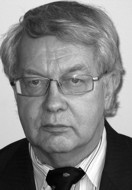Models of Curriculum and Development of Outlets for Training in the Shaping of Humans, Citizens and Specialists in Estonia
The article discusses the main models of curriculum and the outlets for training in general and higher education in Estonia and the EU.
The author develops the existing lists of the outlets for training in higher education into a hierarchical system, connecting them to the main aim and outlet: the shaping of a human, a citizen and a specialist. Sub-aims make the main aspects of this development onedimensional and measurable (for example, knowledge of the main subjects, their terminology and theories). Connecting the knowledge in a subject with the main aim requires understanding the nature of and mutual links between such concepts as human, society and culture. Culture and human knowledge are by their nature symbolic and conventional. All different curricula, sciences and subjects deal with various aspects of humans, society, culture and nature. Further, more intense and integrated comprehension of these connections shows the level of development.
In order to acquire these general and specialised cognitive notions, it is necessary to establish connections between them and other forms of perception, learning, communication and activity. Consistent using and mutually interconnecting of these different forms ensures the diverse development of the learner’s skills. The article focuses on elaborating these two main ideas. The author has developed and implemented this concept in his practice, in studies with students, in reports, research works, presentations and publications.
